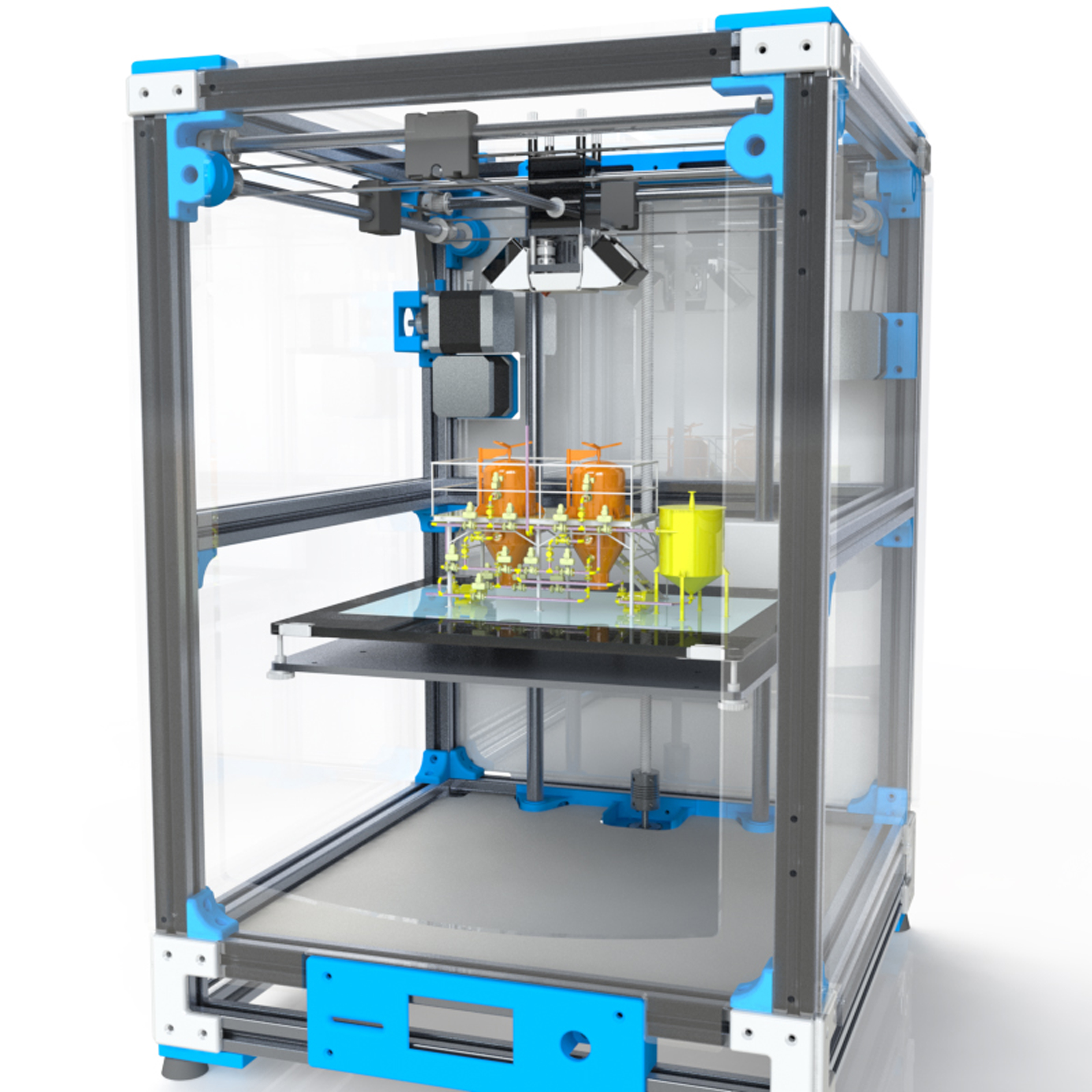3D printing could be used to produce medicines in small batches
Researchers have created a system that can create drugs using a small-scale system housed in a 3D printer.

Medicine production could soon be possible on a much smaller scale according to researchers, who have unveiled a new process using 3D printers that could be used in the home.
The new system, detailed in Science Magazine, uses a readily available 3D printer designed for the home, but scientists from the University of Glasgow then built in a range of bottle-sized vessels, each one then used to carry out a different chemical reaction.
This can then be used by pharmacists to create specific drugs and medicines by adding solvents and reagents at different times in the process – effectively allowing for small scale on-demand medicine production.

Regulation is being highlighted as a hurdle for future development of the system, with drug regulators likely to be keen to ensure the medicines created on such a small scale still meet their validation credentials.
Leroy Cronin, a chemist at the university who was part of the project, said he felt the issue was “manageable”, and future versions of the system could include a validation test.
3D printers are already being used in a range of medical procedures as well as in other fields – including prosthetics for patients with mobility issues.





